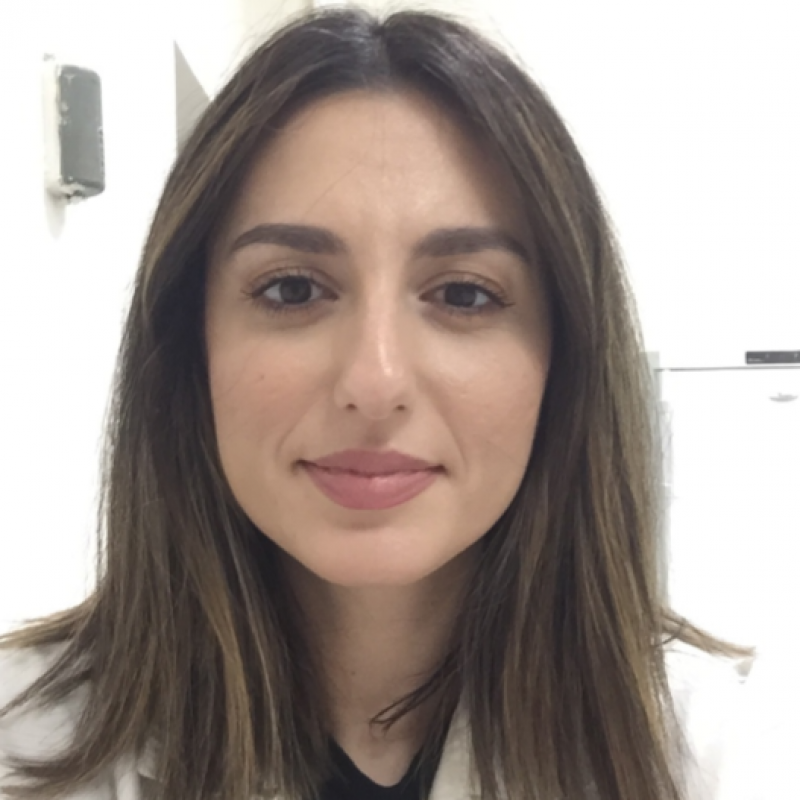Chrysoula Orfanidou is a PhD candidate at Aristotle University of Thessaloniki in the department of Agriculture. She has completed her M.S. and B.S. at the same University, and she has an expertise in Plant Protection. Her research focus is now on plant pathology and specifically in viral plant infections.
In her latest publication she demonstrated the correlation of three types of cucurbit chlorotic yellows virus in Greece, two of which [Beet pseudoyellows virus (BPYV) and Cucurbit yellow stunting disorder virus (CYSDV)] were present for at least 15 years, while the third one [Cucurbit chlorotic yellows virus (CCYV)] was only found in Greece in 2014. In a previous study from 2006, Chrysoula has found that BPYV is the main virus in Greece, followed by CYSDV. Together with her colleagues, Chrysoula sampled a great number of cucurbit cultures in order to identify the cause of the disease 15 years after its first discover. Results of this study showed that CYSDV was the dominant pathogen in 2019 and was much more widespread than BPYV. The identification of the third virus, CCYV, which was not spread across South Greece as well as the changes in viral expansion patterns were explained by the scientists as a result of changes in migration patterns of insect-carriers. You can find more details in the original paper using the link provided below.
Chrysoula told us about her work, her ongoing research, and shared some personal information to know her better. Read what she told us:
What encouraged you to pursue a doctorate?
I think this started during my postgraduate studies, where I got some basic knowledge of the subject of plant pathology, and more specifically about plant virology. At the postgraduate level, research is more limited, and during my doctoral dissertation I would have the opportunity to investigate with more detail areas of my interest.
Why did you work in this field?
The first experience I had with virology was completely by chance. As an undergraduate I had to complete a project to get my degree. I chose virology because I liked the undergraduate course, I didn’t know exactly what techniques to use. But moving on to towards postgraduate studies I found the subject very interesting.
What is the hardest part of your job?
I think that understanding is the hardest part in any job. In a place where many different people work and require collaboration to get a job done, it is difficult to find the golden cut.
How do you see Greece in terms of agricultural management?
Things are difficult. While Greece has a rich geographical terrain and microclimate that allows growth of a variety of plants, from trees, vineyards to horticultural and industrial plants, part of the supply is lagging behind. Large volumes of products are “leaving” abroad as they are very expensive products for Greeks. I remember many years ago a beekeeping professor telling us that although Greece is self-sufficient in honey, 80% of it is imported from China because it is cheaper. I was impressed by this. I want to believe that things will improve.
Have you ever consulted a company or farm association?
The laboratory receives plant samples every week from various regions of Greece, and we examine phytopathogenic micro-organisms (fungi, bacteria, viruses) in them. Over the years, we have been contacted repetitively by various agronomists and producers, who now know us personally and consult us.

RELATED ARTICLES
CONTACT US
____________
greekwomeninstem@gmail.com
Do you have ideas, questions, comments or special requests?
Would you like to highlight your research project or nominate a researcher that you would like to learn more about?
Please write to our email or fill out the form and hit “send”. We will be happy to talk with you!
[contact-form-7 id=”44″ title=”Contact form 1″]
